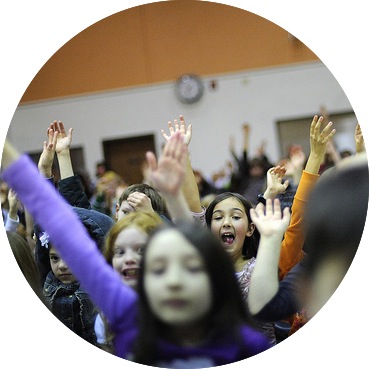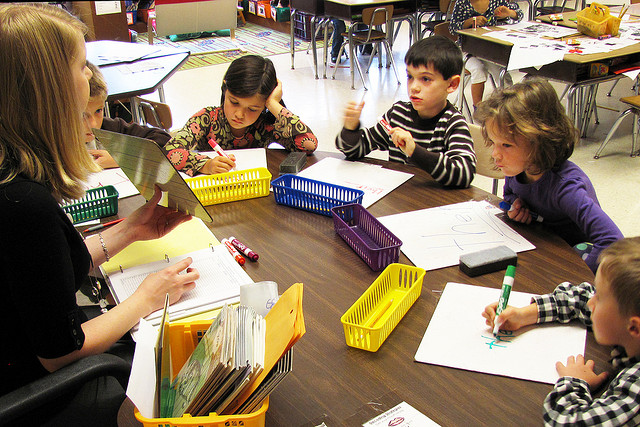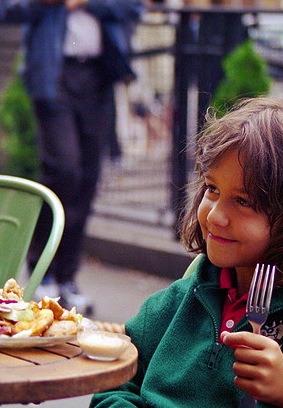An experience in the French education system
 The manner in which children are raised greatly contributes to a country’s national identity. In France, the education system largely complements French cultural practices – but it may appear baffling upon first glance.
The manner in which children are raised greatly contributes to a country’s national identity. In France, the education system largely complements French cultural practices – but it may appear baffling upon first glance.
After participating as both a student and teacher in the French education system, I’ve been exposed to many of the particulars that differentiate France from the rest of the world…
French education in the classroom
The French do not tolerate misbehaving students. Despite the more flexible reputation the French have garnered, French teachers approach discipline with a firm hand.
In my experience, chatty kids were simply considered intolerable. When students disrupted the class, teachers called them out, instructed them to sit on their hands, had them face the wall, or simply banished them from the classroom.
While I was exposed to disciplinary teachers growing up in the American education system, never before did I witness such diligent attention to protocol – an observation confirmed by both American and Canadian friends throughout France. As such, the children behaved better than any students I’ve witnessed in American schools.

Approach to creativity
In accordance with this strict classroom behavior, the French also approach lesson plans with a rigid hand. Only in English classes did the teachers stow away their books in favor of more lenient, creative learning.
As an English teacher, I felt appreciated and adored by my students, but I have a sneaking suspicion it resulted entirely from my use of learning games in class. Kids lit up during English lessons: we worked on new vocabulary by drawing absurd animals with purple feet and nine ears, and practiced verb tenses with active, physical charades.
The United States model of education encourages extracurricular activities to a nearly unhealthy degree.
Although I respect the French textbook approach, exposing children to new material in a more engaging, creative manner helped the students’ retention rates.
A French lunch
Between classes, I participated in the infamous French lunch. Even though the practice of taking extended lunches, complete with un verre de vin, is largely making way for the quick baguette on the go, French elementary schools continue to honor the tradition.

While working at a town outside of Paris, teachers and students alike returned home for an extended lunch.
With two full hours, students had plenty of time to leisurely walk home with their parents, share a meal, and return to school. Conversely, colleagues invited me home for pasta, or shared wine with me in the teachers’ lounge.
In most American school systems, lunchtime is simply too short for such a practice, and none of the teachers I know can drink on the premises. With just this small difference between systems, the French identity truly becomes visible.
Après l’ècole
The United States model of education encourages extracurricular activities to a nearly unhealthy degree. Growing up, I found that students who didn’t participate in sports or clubs were largely considered lazy. As college applications neared, this unhealthy stigma became even more prominent, so students piled on as much work as possible, both in school and out.
As a sixteen-year-old foreign exchange student in Bordeaux, I was shocked when my peers showed little to no interest in extracurricular activities. The very concept was clearly unfamiliar and bizarre.
“Why waste our time?” they would ask, and instead spend their evenings studying, or simply enjoying their leisure time. Additionally, the children I taught seldom participated in organized clubs. Given the work life balance the French have cultivated, this shying away from other activities suddenly doesn’t seem so radical.
A world of insight
Évidemment, I was raised differently. While some of my cultural perceptions will most likely remain the same, and I will continue to incorporate games and creativity into my teaching practices, I also enjoy extended lunches, and believe that their focus on leisure time is healthy and constructive.
Nevertheless, working in the French education system challenged my preconceived notions – and provided fascinating insight into deeply embedded French practices.
Does schooling in your country differ much from the French system? Share your experiences with us below!
Image credits:1. Children at Evergreen Forest Elementary, by JBLM PAO, via Flickr.
2. First grade reading, by woodleywonderworks, via Flickr.
3. Yummi, by Yan Chi Vinci Chow, via Flickr.
4. A group of teenage girls, by The Hampster Factor, via Flickr.








Hi Alexandria! Yes, my own experience is both from the point of view of a student and English teacher within the Australian Education System. Our system, in my opinion, appears more like the American one. The school days appear long and intense with only a short lunch period. It also means that school can be a very enclosed experience without relief- for both students and teachers. There is less ‘touching base with home’ except now via mobile phones which although banned for use during the day, secretly are used by students. The discipline used to be stricter here but mostly depends on whether your child in enrolled in the private, independent or public education system. The independent system is chosen by many (at a price) for the better discipline. Creativity and group work is encouraged as well as developing thinking skills. I do agree that active lessons ensure the best retention, especially with students who struggle to learn and I enjoy this interaction! We do have optional extra curricular activities but students are not really pushed into that; it is okay to not participate. I wish we had extended lunches to help the work-life balance! I like the easy positive relationship most teachers here have, with their students. I do feel learning and teaching can improve!